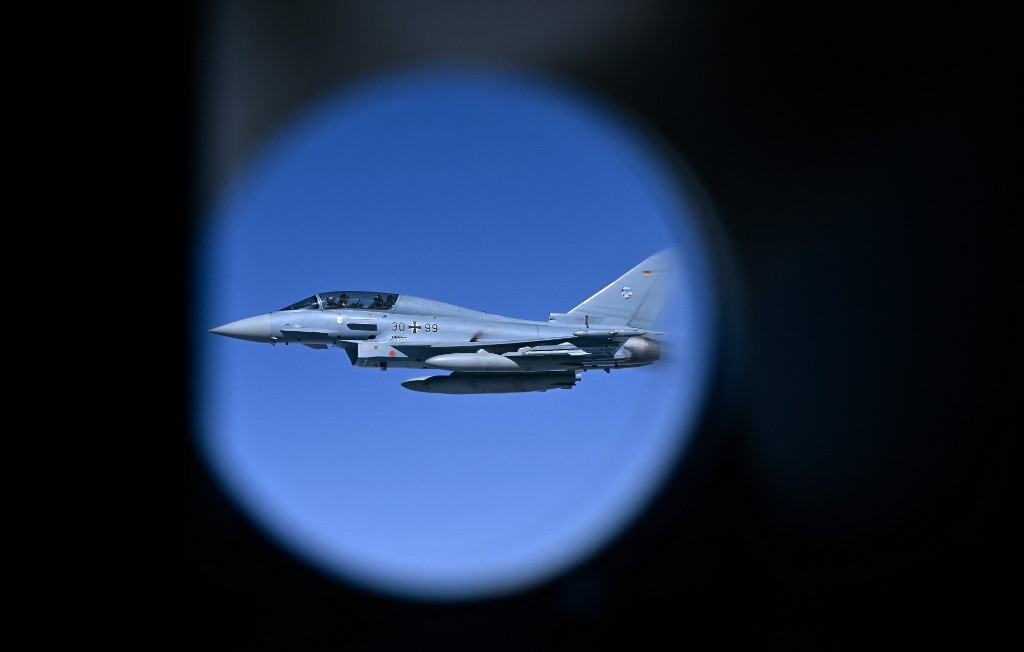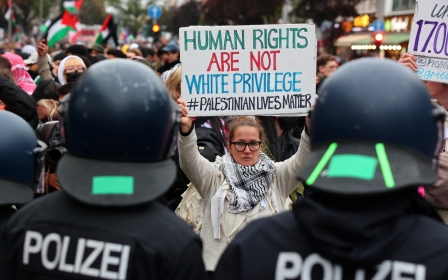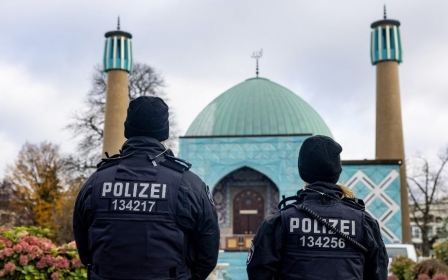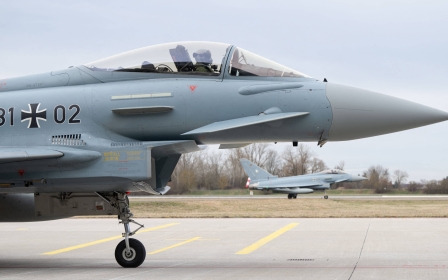Germany seeks Turkish assurances over Eurofighter and tank sales

Germany will continue to limit arms sales to Turkey despite proceeding with some long-standing Turkish requests, sources familiar with the negotiations told Middle East Eye.
Officials in Berlin told their Turkish counterparts earlier this month that they would still approve naval weapons sales, according to a source privy to the private discussions.
“Berlin made it very transparently clear to Ankara that they were ready to satisfy Turkish needs in the navy. But beyond that, any tangible expectation in other areas, such as aircraft weaponry, wouldn’t be realistic,” the source told MEE.
Following the talks, Germany’s Federal Security Council, which meets in secret, approved Turkey's purchase of $368m worth of weaponry, the first such sale in years, according to the German media reports published last week.
The sales package includes 100 anti-aircraft missiles and torpedoes for the Turkish navy, along with substantial material packages for modernising Turkish submarines and frigates.
New MEE newsletter: Jerusalem Dispatch
Sign up to get the latest insights and analysis on Israel-Palestine, alongside Turkey Unpacked and other MEE newsletters
Turkey has long been on Germany’s watch list due to its use of German weapons, such as Leopard tanks, in internal security operations and land-based warfare in Syria.
“The Germans quite clearly said that beyond the naval needs, Berlin’s hands were tied due to internal opposition to any arms sales to Turkey,” the source added.
Internal opposition
Germany officially began technical talks with Ankara earlier this week for the potential sale of up to 40 Eurofighter Typhoon warplanes, valued at $5.6bn. However, the source said the move was merely a bureaucratic manoeuvre to delay the sale as long as possible.
“It is like referring issues to the subcommittees you know won't make any progress,” a second source added.
'The Germans quite clearly said that beyond the naval needs, Berlin’s hands were tied due to internal opposition to any arms sales to Turkey'
- source close to talks
“When every other member of the consortium supports a sale, you have to make a face-saving move.”
The jets are produced by a group of countries: Germany, Spain, Italy and the UK. All support the sale except Germany.
Progress on the deal has been slow due to opposition from some parties in the German government's coalition, such as the Greens party.
The second source said Germany would only make progress on the Eurofighter request if Turkey provided written guarantees that the aircraft would not be used to violate disputed Greek airspace in the Aegean, a condition Ankara finds unacceptable.
“The Germans also said they wouldn’t advance the Turkish requests on land-based weapons, such as engines and other parts required for the Turkish national tank project and others, unless Ankara again provides guarantees that they wouldn’t be used in offensive military actions abroad,” the first source added.
Turkey's foreign ministry has declined to comment. Middle East Eye has reached out to the German embassy in Ankara for a response.
German Foreign Minister Annalena Baerbock reiterated that Germany will support Israel despite heavy civilian casualties, laying the blame on Hamas. pic.twitter.com/pGyKGey1Pl
— Middle East Eye (@MiddleEastEye) October 15, 2024
Sources familiar with the issue told MEE last week that Germany had decided to reconsider Ankara’s Eurofighter purchase request “with a fresh mind” following regional tensions between Ukraine and Russia, as well as Israel's war on Gaza.
German Chancellor Olaf Scholz met Turkish President Recep Tayyip Erdogan on the sidelines of the United Nations General Assembly meetings in New York last month.
Scholz is scheduled to visit Ankara on 19 October, the German government has announced. Several sources have hinted that the German chancellor is seeking a deal to expedite the repatriation of some 15,000 Turkish citizens whose asylum applications have been rejected.
Middle East Eye delivers independent and unrivalled coverage and analysis of the Middle East, North Africa and beyond. To learn more about republishing this content and the associated fees, please fill out this form. More about MEE can be found here.




